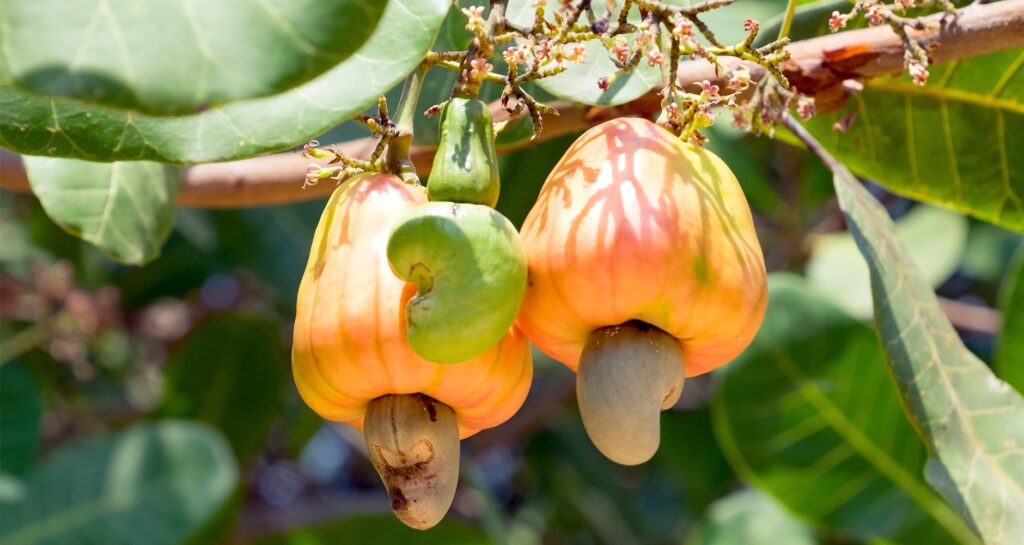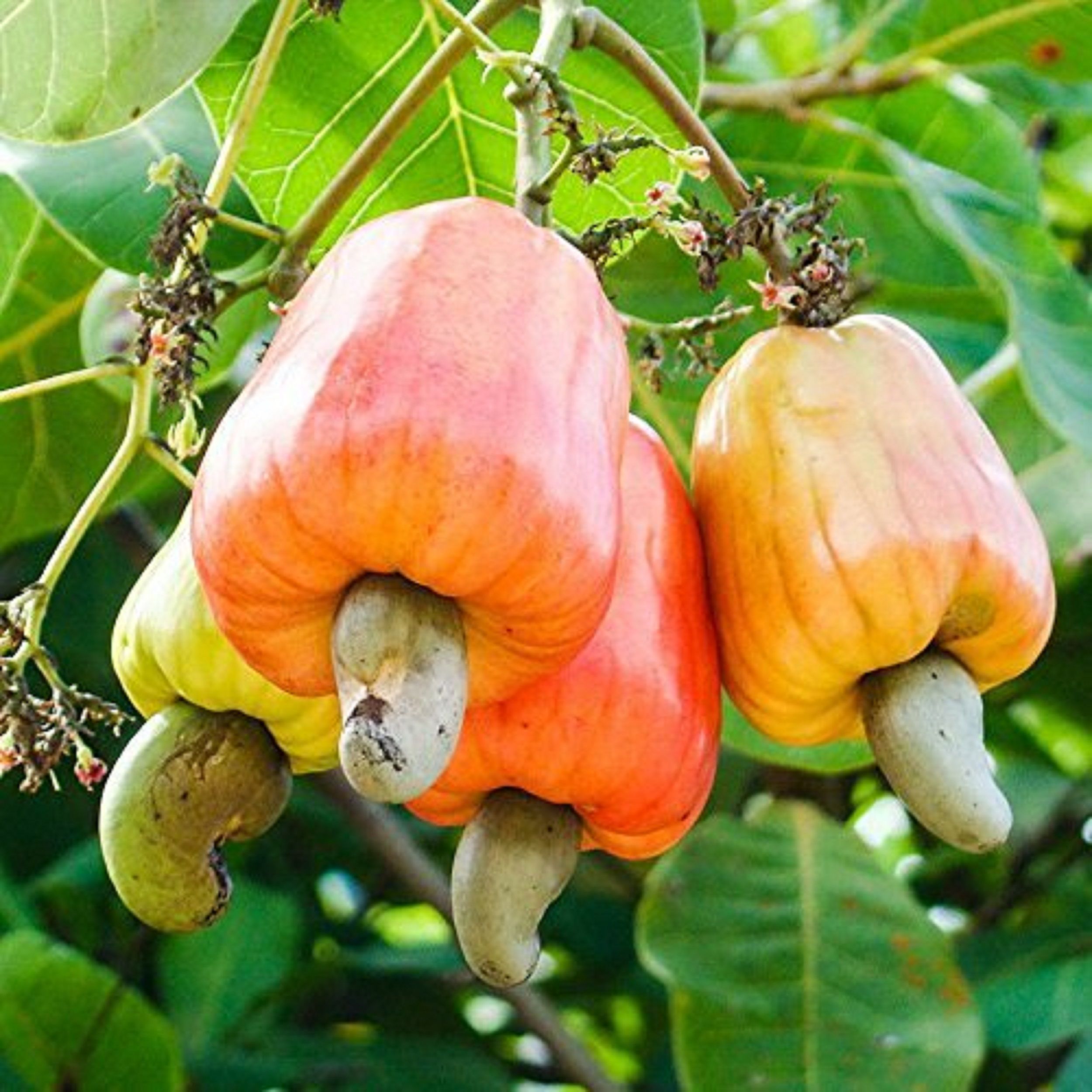Cashew nut farming is on the brink of transformation, driven by innovations and emerging trends aimed at enhancing productivity, sustainability, and market competitiveness. As a vital component of global agriculture, cashew nuts are valued for their economic significance and nutritional benefits. With the global demand for cashew nuts rising, farmers and stakeholders are increasingly adopting new technologies and practices to meet this demand while addressing environmental and economic challenges.
Innovations in Cashew Nut Farming
- Advanced Breeding TechniquesAdvances in breeding techniques are paving the way for more resilient and high-yielding cashew varieties. Traditional breeding methods are being complemented by modern approaches such as genetic modification and CRISPR technology. These innovations enable the development of cashew varieties that are resistant to pests, diseases, and environmental stressors, ultimately improving overall yield and quality.
- Precision AgriculturePrecision agriculture, facilitated by technologies like GPS and remote sensing, is revolutionizing cashew nut farming. By using data analytics to monitor soil health, weather conditions, and crop performance, farmers can make informed decisions about irrigation, fertilization, and pest control. This approach not only enhances productivity but also minimizes resource waste and environmental impact.
- Drones and Remote SensingDrones equipped with high-resolution cameras and sensors are becoming essential tools in cashew nut farming. They provide real-time aerial imagery, allowing farmers to monitor crop health, detect diseases early, and assess the effectiveness of interventions. Remote sensing technology helps in mapping out variations in soil properties, aiding in targeted management practices.
- Integrated Pest Management (IPM)Integrated Pest Management is an approach that combines biological, cultural, mechanical, and chemical methods to control pests in an environmentally sustainable manner. Innovations in IPM for cashew nut farming include the development of biological control agents and pheromone traps that reduce reliance on chemical pesticides, thus promoting a healthier ecosystem.
- Sustainable Farming PracticesThe push for sustainability is driving innovations in cashew nut farming practices. Techniques such as agroforestry, where cashew trees are planted alongside other crops or trees, contribute to biodiversity and soil health. Additionally, practices like composting and organic farming are gaining traction, reducing the environmental footprint of cashew nut production.
- Smart Irrigation SystemsWater management is crucial in cashew nut farming, particularly in regions prone to drought. Smart irrigation systems, including drip and sprinkler systems equipped with sensors, help optimize water use by delivering precise amounts of water based on soil moisture levels and weather forecasts. This not only conserves water but also enhances crop yields.

Emerging Trends in Cashew Nut Farming
- Increased Investment and ResearchAs the global demand for cashew nuts grows, there is a surge in investment and research focused on improving cashew farming practices. Governments, private investors, and research institutions are funding projects aimed at enhancing cashew production through innovation and technology.
- Growing Demand for Organic Cashew NutsConsumer preferences are shifting towards organic and sustainably produced food products. This trend is influencing cashew nut farming, with a growing number of farmers adopting organic practices to meet market demand and obtain premium prices for their products.
- Blockchain and Supply Chain TransparencyBlockchain technology is being explored for its potential to enhance transparency and traceability in the cashew nut supply chain. By providing a secure and immutable record of transactions from farm to table, blockchain can help ensure fair trade practices, improve quality control, and build consumer trust.
- Value Addition and DiversificationBeyond raw nuts, there is a growing trend towards value addition and diversification in the cashew industry. Farmers and processors are exploring opportunities to produce cashew-based products such as cashew butter, milk, and snacks. This not only adds value to the raw product but also opens new revenue streams.
- Climate Resilience and AdaptationClimate change poses significant challenges to agriculture, including cashew nut farming. There is a concerted effort to develop climate-resilient cashew varieties and practices that can withstand changing weather patterns, such as extreme temperatures and irregular rainfall. Adaptation strategies include adjusting planting dates and implementing soil conservation techniques.
- Empowering Smallholder FarmersSmallholder farmers play a crucial role in cashew nut production, particularly in developing countries. Efforts to empower these farmers through training, access to technology, and fair trade initiatives are gaining momentum. Empowering smallholders enhances their productivity and income, contributing to the overall growth of the cashew industry.
Conclusion
The future of cashew nut farming is bright, marked by innovations and trends that promise to enhance productivity, sustainability, and market opportunities. As the industry evolves, the integration of advanced technologies, sustainable practices, and market-driven strategies will play a pivotal role in shaping the future of cashew nut farming. By embracing these changes, farmers and stakeholders can ensure the continued growth and success of this vital agricultural sector.
Ajigofarms is a reliable global agricultural purchase sourcing with profound expertise in the manufacturing, and exportation of food crops. We are tested, and trusted suppliers of all kinds of cash crops and food crops. Our constant supply chain solution makes exporting easy, quick, and safe, we are identified with timeliness and meeting up with deadlines. Regardless of the region you are located in worldwide, you can reliably order your Agric products and be rest assured of successful delivery.




